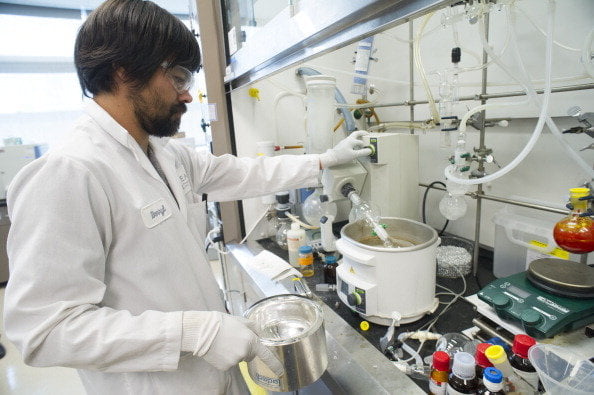
The drugmaker Gilead Sciences said on Monday that it would buy Kite Pharma for about $11.9 billion to bolster its aging portfolio with an emerging cancer treatment.
The acquisition, Gilead’s first major deal since 2011, is a departure from the path followed by the broader pharmaceutical industry, where — apart from Johnson & Johnson’s $30 billion takeover of the Swiss biotechnology company Actelion — the pace of acquisitions had largely slowed this year. Many drugmakers that had been busy with takeover activity in recent years have since been at work integrating their purchases.
Under the terms of the agreement, Gilead will pay $180 a share in cash, a 29 percent premium to Kite’s closing price on Friday.
With the deal, Gilead would acquire Kite’s new cancer-fighting method, which harnesses the body’s immune system to attack malignant cells. Kite’s most promising treatment, for non-Hodgkin lymphoma, is expected to receive government approval within the next year.
“The acquisition of Kite establishes Gilead as a leader in cellular therapy and provides a foundation from which to drive continued innovation for people with advanced cancers,” John F. Milligan, Gilead’s chief executive, said in a statement.
Continue reading the main story
Continue reading the main story
Large pharmaceutical companies have traditionally made a substantial impact on deal-making activity in the wider health care sector, using acquisitions of smaller drugmakers with promising treatments rather than spending billions of dollars on research and development.
Gilead, which made its name selling treatments for H.I.V. and hepatitis C, has been seeking to strike a deal for some time as it hunted for the next big drug: Its business has faced pressure amid competition in the market for hepatitis C treatments. Gilead’s revenue from sales of those drugs dropped in the second quarter this year to $2.9 billion, compared with $4 billion a year before.
Gilead shares had fallen nearly 8 percent in the 12 months that ended last week, as investors worried that the company had not yet found a suitable addition to its product pipeline.
In November, however, the company’s chief financial officer, Robin L. Washington, told analysts: “We have a healthy balance sheet to invest in our pipeline and external opportunities.”
As of June 30, Gilead reported having $21.6 billion in cash and short-term investments.
The acquisition of Kite would be Gilead’s biggest purchase, surpassing its $11 billion deal for Pharmasset in 2011, according to Standard & Poor’s Global Market Intelligence.
Questions remain about Kite’s prospects, as Novartis and other rivals rush to bring similar cancer treatments to market.
The deal is expected to close by the end of the year.
Gilead took advice from Bank of America Merrill Lynch, Lazard and the law firm Skadden, Arps, Slate, Meagher & Flom. Kite worked with Centerview Partners, Jefferies, Cowen and Company and the law firms Sullivan & Cromwell and Cooley.
[“Source-nytime”]
